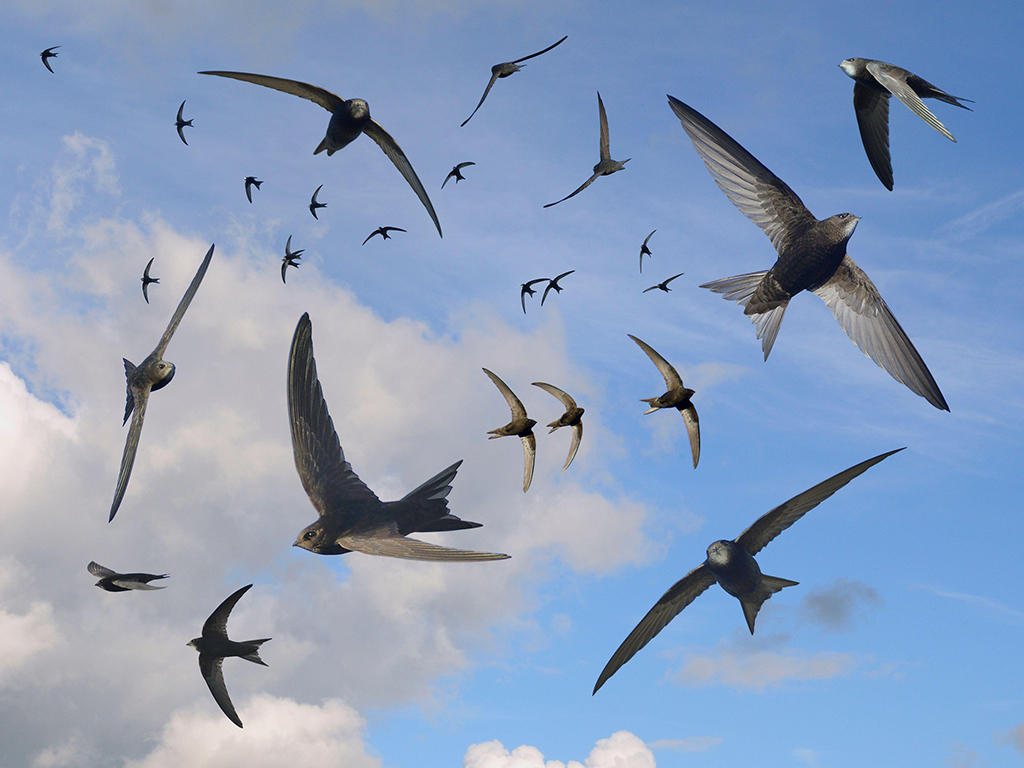
There is a species of swift that lives behind the waterfalls of Argentina’s Iguazu River. Their first flight, described by Mark Cocker in his new book, requires surging through the falls’ tumbling veils of spray:
“Here the young great dusky swifts will burst forth, anointed and baptised by the deluge, at a place that is among the most sublimely beautiful on our planet. To break that riverine hymen, to plunge through the liquid egg-sac into our atmosphere, how must it feel for these miraculous Earthlings in their moment of rebirth we can only dream.”
There are several such wonder-inducing moments in One Midsummer’s Day, yet underneath its majestic overview of our living planet is also a sense of grief over the ongoing destruction of the natural world. To protect the connections that bind us all, across the distant past and the burning present, Cocker ultimately argues, we must better prize “our participation within the collective living whole”.
Set within the confines of his home and garden, and bounded by the span of a single day, Cocker’s book takes the reader on a journey through continents and aeons. His muse and guide in this adventure is the swift: a small black bird that numbers around 100 species and which dive-bombs into the UK each year some time between late April and early May.
Staying on these shores only a few months, the bird is so enmeshed in its aerial existence that it sleeps, feeds and mates on the wing, and bathes by sailing through rain. When its chicks are fledged, its meandering begins once again, back through the bottleneck of the Mediterranean and out into Africa. For swifts who breed in Beijing, their round trip encompasses more than 26,000km: over half the circumference of the Earth. The white-throated needletail, which has a top speed of 170km an hour, is the fastest bird in level flight.
Cocker takes swifts’ affinity for constant motion as an invitation to imaginatively escape the limits of a single species. One moment we are inside the vibrating abdomen of a cicada, marvelling at the 4,500 cycles-a-second of its sound-producing tymbal; the next we’re considering the poet Ted Hughes’s description of a dead swift’s “charred scream”, contemplating the metaphysical question of what it means to live life “at, or beyond, the very limits of containment”.
[See also: A world built on trash]
At the macro level too, the book insists that we understand swifts – and ourselves – as inseparable from the Earth’s larger story. “It takes a whole universe to make just one swift,” Cocker writes, describing how the creation of our Earth, moon, seasons and tides midwifed life into existence. This sweeping, swift’s-eye approach to the world is not purely a stylistic or philosophical preference; it is an existential imperative, Cocker suggests. Britain’s common swifts declined by 53 per cent between 1995 and 2015, and are now a red-listed species at risk of local extinction. The disappearance of nesting sites and the devastating impacts of pesticide are partly to blame – but so too is climate change and the “troubling matrix of anthropogenic problems” we inflict on the natural world. As Cocker makes clear in one mighty sentence that unfolds over almost four pages, the ways we assault and diminish wildlife are multiple and interlinked.
Reflecting nature’s plight effectively is a long-running concern of Cocker’s. In a 2015 article for the New Statesman, he took issue with nature writing that he feared insufficiently addressed the devastation, leaving us “fiddling while the agrochemicals burn” – at which the author and academic Robert Macfarlane shot back in defence of cultivating a wide-reaching “ecology of mind”. Cocker’s book Our Place then sought to demonstrate his point by exploring the triumphs and failures of British conservation. But his latest offering takes a more oblique approach, rarely referencing the eco-crisis until the final chapter, where he acknowledges the difficulty of reconciling “our individual contribution with the sum of our effects as a species”.
Cocker’s own processing of ecological sorrow seems to have moved past frustration with the limitations of nature writing into a stirring emphasis on the importance of connection and awe. This book cannot reverse the current trajectory of loss, but its layered, lyrical journey into deep time is a rousing reminder that grief is well answered by making our own time count.
One Midsummer’s Day: Swifts and the Story of Life on Earth
Mark Cocker
Jonathan Cape, 352pp, £20
Purchasing a book may earn the NS a commission from Bookshop.org, who support independent bookshops
[See also: How Nan Shepherd shaped modern nature writing]





